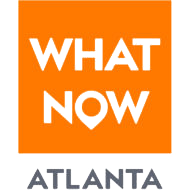In addition to our normal news coverage, What Now Atlanta is tracking ways Atlanta’s businesses are adapting to the novel coronavirus and the challenges it brings to brick-and-mortars.
Sign up now to get our Daily Breaking News Alerts
After being closed for nearly a month as ordered by the state in an effort to slow the spread of COVID-19, a handful of businesses can reopen in a “minimum basic operations” capacity starting Friday, April 24, 2020.
Those entities are gyms, fitness centers, bowling alleys, body art studios, barbers, cosmetologists, hair designers, nail care artists, estheticians, their respective schools, and massage therapists.
While these select businesses can resume operations starting tomorrow, the state’s shelter-in-place order is still active until 11:59 p.m. on April 30, 2020.
After that date, new rules will be promulgated through Executive Order to “continue to limit social interaction while providing flexibility for business owners to maintain the value of their business,” according to a statement by the office of Governor Brian Kemp.
Restaurants and dining rooms of private social clubs will be allowed to reopen on a limited basis on Monday, April 27, 2020, subject to new restrictions that are set to be announced Thursday.
Theaters will also be permitted to engage in “minimum basic operations” beginning Monday.
Bars, nightclubs, amusement park ride operators, and live performance venues will remain closed through at least May 13, 2020, when the Public Health State of Emergency is set to expire.
Minimum Basic Operations, as outlined by the Governor’s office, are:
- The minimum necessary activities to maintain the value of a business, establishment, corporation, non-profit corporation, or organization; provide services; manage inventory; ensure security; process payroll and employee benefits; or for related functions, and such minimum necessary activities include remaining open to the public subject to the restrictions of this Order.
- The minimum necessary activities to facilitate employees or volunteers being able to work remotely from their residences or members or patrons being able to participate remotely from their residences.
- Instances where employees are working outdoors without regular contact with other persons, such as delivery services, contractors, landscape businesses, and agricultural industry services.
In addition to the Minimum Basic Operations restrictions, businesses must also adhere to the following:
- Screening and evaluating workers who exhibit signs of illness, such as a fever over 100.4 degrees Fahrenheit, cough, or shortness of breath.
- Requiring workers who exhibit signs of illness to not report to work or to seek medical attention.
- Enhancing the sanitation of the workplace as appropriate.
- Requiring hand washing or sanitation by workers at appropriate places within the business location.
- Providing personal protective equipment as available and appropriate to the function and location of the worker within the business location.
- Prohibiting gatherings of workers during working hours.
- Permitting workers to take breaks and meals outside, in their office or personal workspace, or in such other areas where proper social distancing is attainable.
- Implementing teleworking for all possible workers.
- Implementing staggered shifts for all possible workers.
- Holding all meetings and conferences virtually, wherever possible.
- Delivering intangible services remotely wherever possible.
- Discouraging workers from using other workers’ phones, desks, offices, or other work tools and equipment.
- Prohibiting handshaking and other unnecessary person-to-person contact in the workplace.
- Placing notices that encourage hand hygiene at the entrance to the workplace and in other workplace areas where they are likely to be seen.
- Suspending the use of Personal Identification Number (“PIN”) pads, PIN entry devices, electronic signature capture, and any other credit card receipt signatur requirements to the extent such suspension is permitted by agreements with credit card companies and credit agencies.
- Enforcing social distancing of non-cohabitating persons while present on such entity’s leased or owned property.
- For retailers and service providers, providing for alternative points of sale outside of buildings, including curbside pickup or delivery of products and/or services if an alternative point of sale is permitted under Georgia law.
- Increasing physical space between workers and customers.
- Providing disinfectant and sanitation products for workers to clean their workspace, equipment, and tools.
- Increasing physical space between workers’ worksites to at least six (6) feet.
In addition to these guidelines, the Georgia Board of Cosmetology and Barbers has a separate set of requirements for salons and barbershops.
[Editor’s note: The novel coronavirus (COVID-19) pandemic is rapidly evolving as is its effect on Atlanta, and the City’s businesses and its residents. Click here for What Now Atlanta’s ongoing coverage of the crisis. For guidance and updates on the pandemic, please visit the C.D.C. website.]






